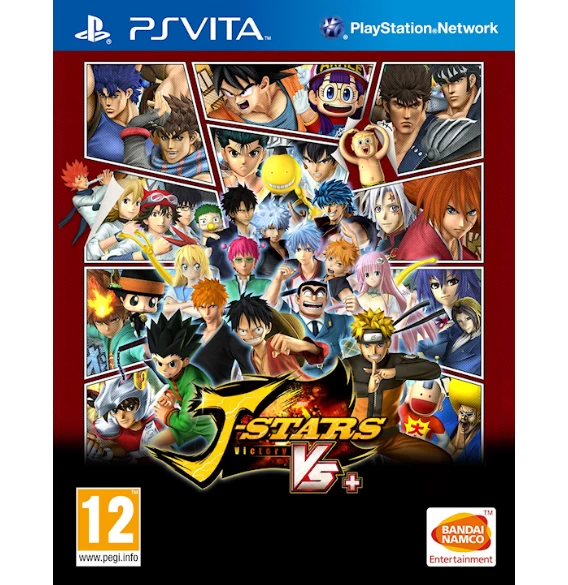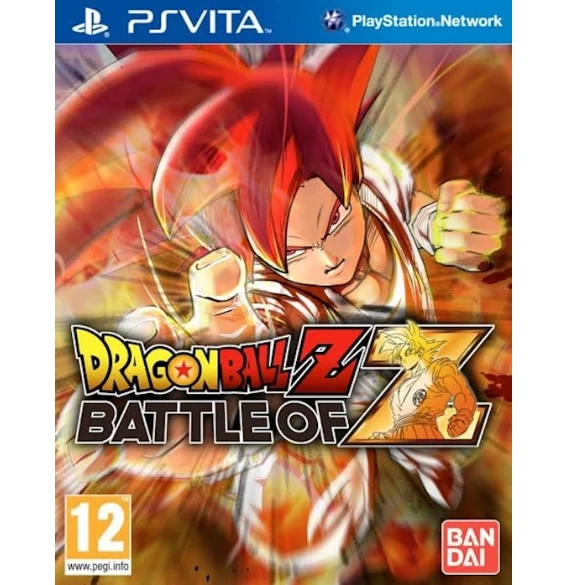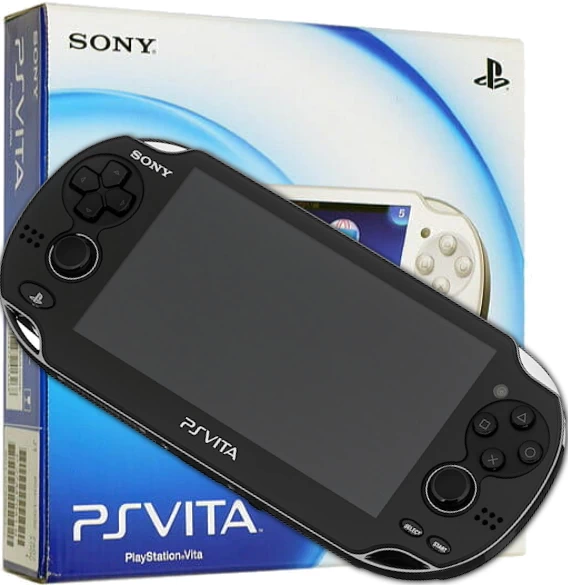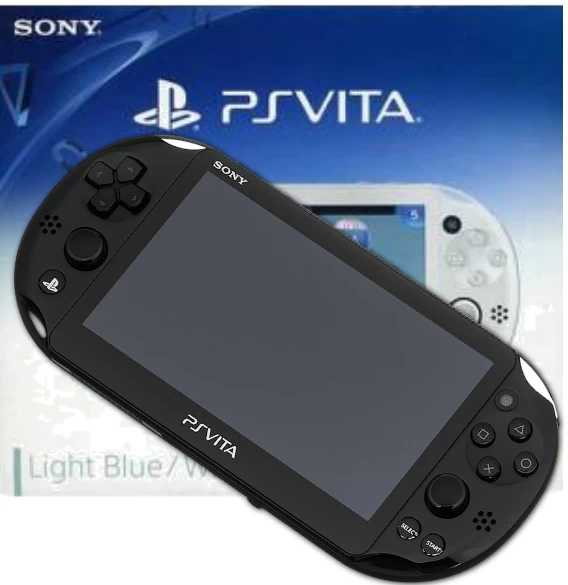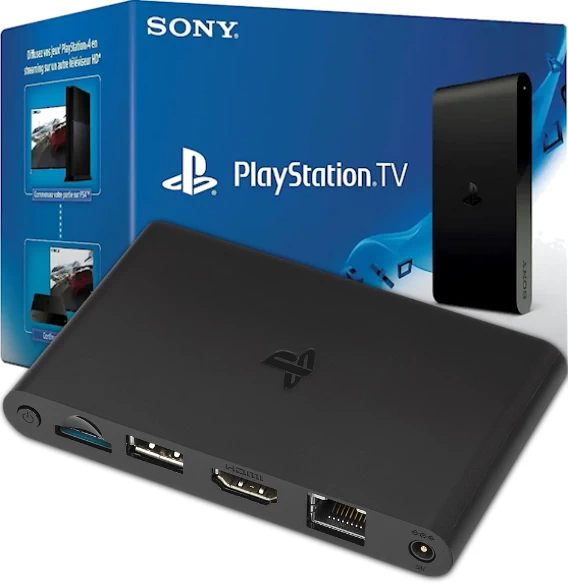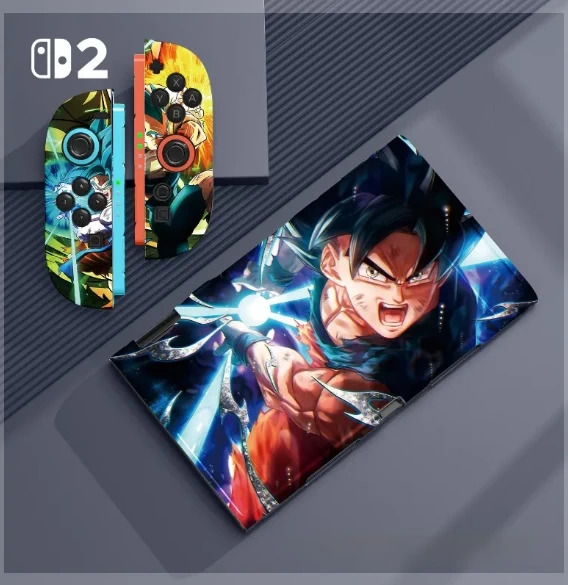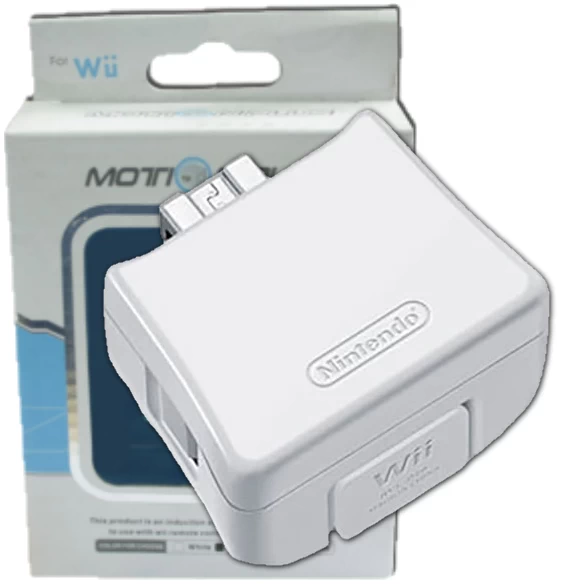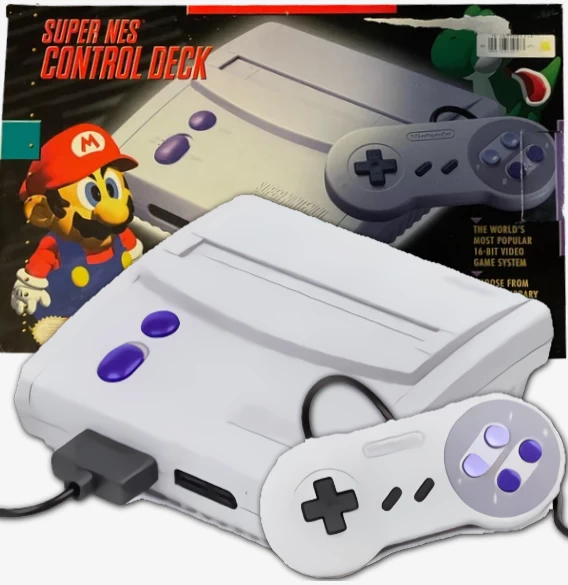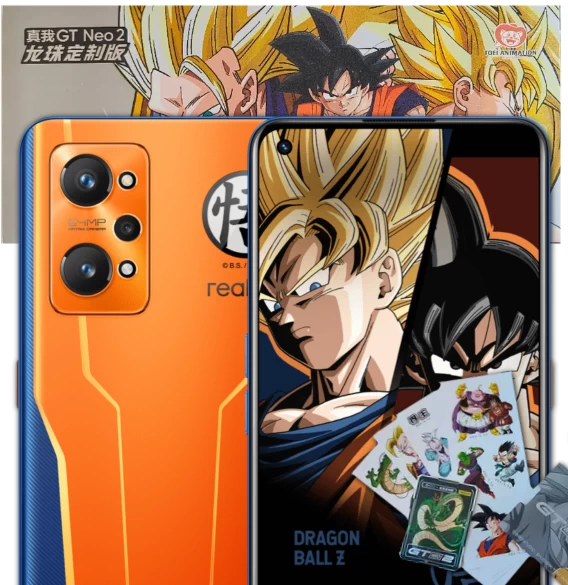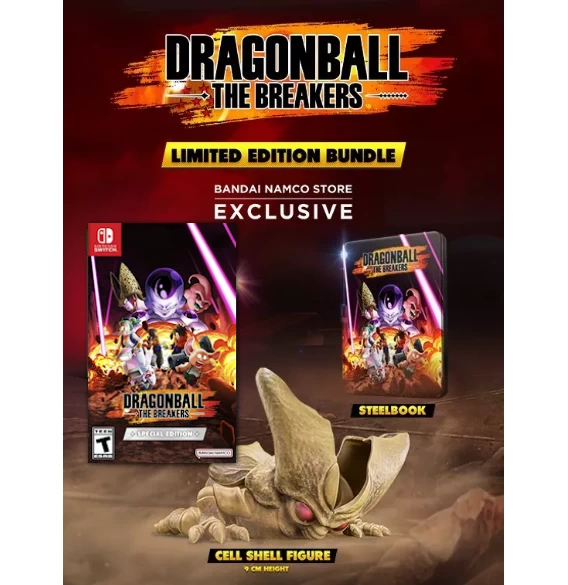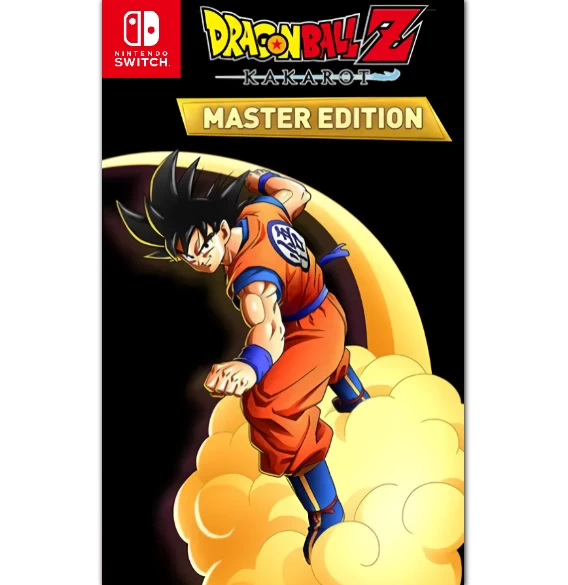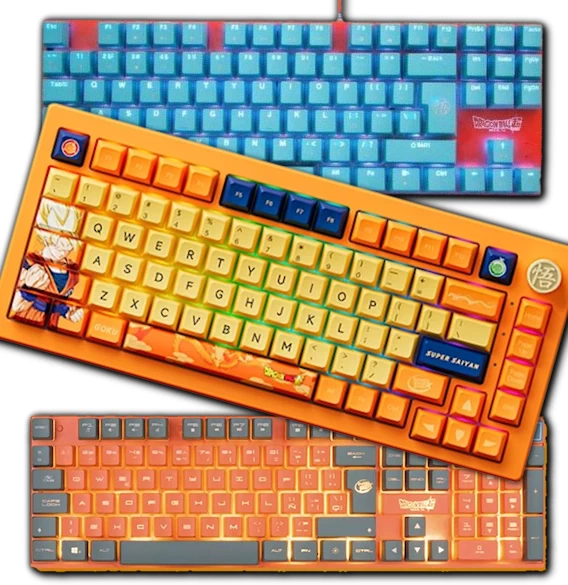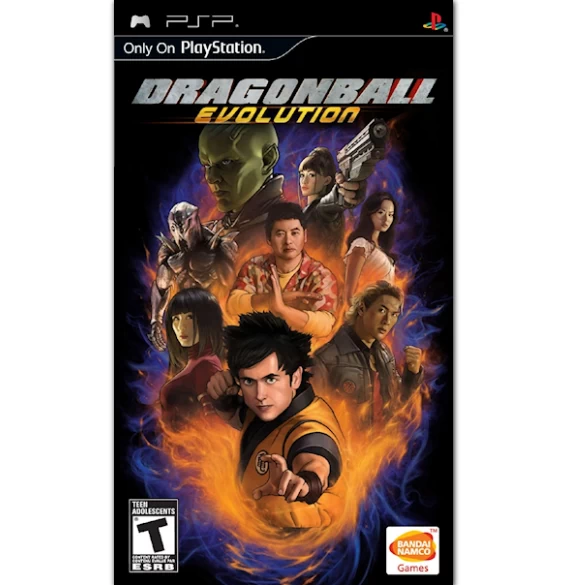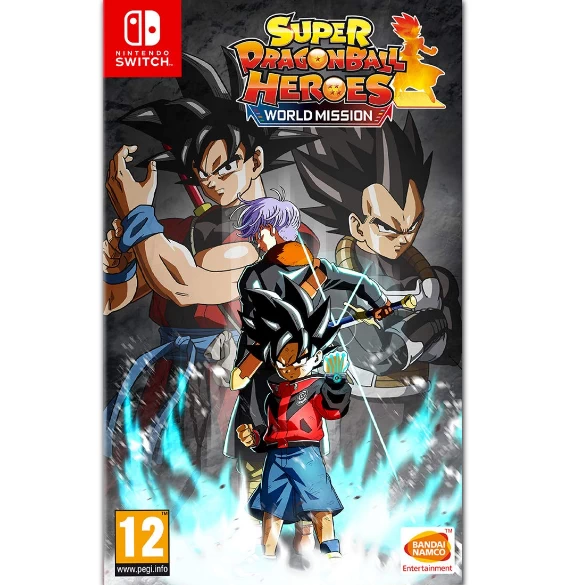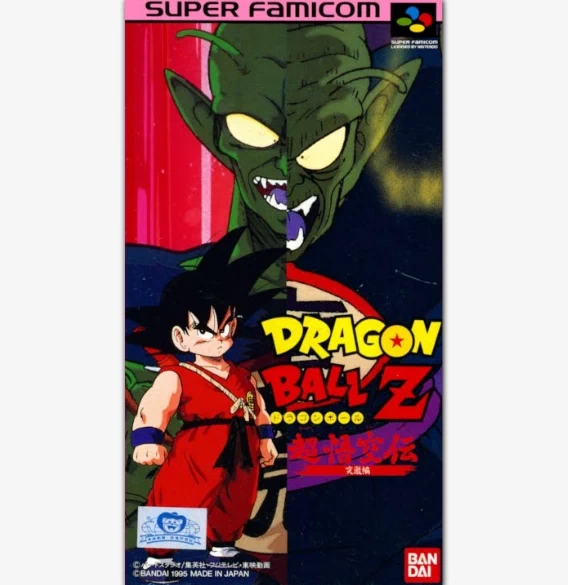All Dragon Ball video games for the PlayStation Vita (PS Vita)
The PS Vita and Dragon Ball Z: the two games that were released for this Sony console.
Two games were released to be played on the most famous handheld console in history. Here are those two DBZ games.
The PlayStation Vita, or PS Vita, is the third handheld console released by Sony, available from 2011 to 2018, and the successor to the PSP. It greatly improved the graphics compared to its predecessors and was backward compatible with PSP and PS1 games. Of course, it also had its own titles, and Dragon Ball was no exception; here we show you the only two games that were released.
The 2 Dragon Ball games released for the PlayStation Vita (PS Vita), all games.
Here is the complete list of the two Dragon Ball games released for Sony’s handheld console, the PS Vita. Both are fighting games, although it must be admitted that J-Stars Victory Vs is not purely a Dragon Ball game, but rather a title featuring characters from V-Jump, including some from DBZ.
-
J-Stars Victory Vs
Video gamePlatform(s):PlayStation Vita (PS Vita)Genre:FightingRegion(s):EUJPNNALanguage(s):EnglishJapanesePlayers:2 Players4 PlayersWifiDeveloper(s):SpikeYear:2014More InformationJ-Stars Victory Vs
J-Stars Victory Vs is a fighting game that brings together multiple characters from the Japanese magazine Weekly Shōnen Jump, including some from Dragon Ball like Goku, Vegeta, and Frieza. It features multiplayer and 2 vs. 2 battles, and was also released on other platforms such as PS3 and PS4.
-
Dragon Ball Z: Battle of Z
Video gamePlatform(s):PlayStation Vita (PS Vita)Genre:FightingRegion(s):EUJPNNALanguage(s):EnglishJapanesePlayers:2 Players4 PlayersWifiDeveloper(s):ArtdinkYear:2014More InformationDragon Ball Z: Battle of Z
Dragon Ball Z: Battle of Z is the only game dedicated exclusively to DBZ released for this console. It also had versions for PS3 and Xbox. The game allows you to use up to 70 different characters, includes a multiplayer mode for up to 4 players, and its story mode covers the entire Dragon Ball Z saga, from the Saiyans to Boo.
The different versions of the Play Station Vita (PS Vita)
If you want to play the different Dragon Ball games for PS Vita, you will need one of these consoles, which supported these games: the first version, the PCH-1000; the second, the PCH-2000 or PS Vita Slim; and its TV version, the PlayStation TV.
-
PlayStation Vita (PCH-1000)
Video game consolePlatform(s):PlayStation Vita (PS Vita)Region(s):AUSEUJPNNADeveloper(s):Sony Computer EntertaimentYear:2011More InformationPlayStation Vita (PCH-1000)
The PS Vita (PCH-1000) is the first version of this console and was designed to replace the different PSP models with graphical improvements, a better screen, and new features compared to the PSP. This console was backward compatible with PSP and PS1 games, allows internet connection, and supports game installation from the cloud.
-
PSVita Slim (PCH-2000)
Video game consolePlatform(s):PlayStation Vita (PS Vita)Region(s):AUSEUJPNNADeveloper(s):Sony Computer EntertaimentYear:2014More InformationPSVita Slim (PCH-2000)
The PS Vita Slim (PCH-2000) is the second version released of this console, characterized by being thinner than the previous version, with some redesigned buttons, but the most important novelty was the inclusion of OLED technology in the screen.
-
PlayStation TV (PSVita TV)
Video game consolePlatform(s):PlayStation Vita (PS Vita)Region(s):AUSEUJPNNADeveloper(s):Sony Computer EntertaimentYear:2014More InformationPlayStation TV (PSVita TV)
The PS Vita TV or PlayStation TV is the latest version released of this console, characterized by having no screen, sound, or controls. It is essentially a mini-console with PS Vita technology, which we had to connect to the PC and use our DualShock 3 or 4 controllers to play on our TV. It is portable because it takes up no more space than a modern external hard drive.
More complete lists of Dragon Ball games and video games.
We also have more complete lists of Dragon Ball games and video games cataloged by their gaming platform, including Board Games, PlayStation, Nintendo NES, etc.
Here are some of the Dragon Ball games and video games we have for you:
Discover some of the Dragon Ball games, video games, consoles, and collectible accessories. From the iconic NES and GameBoy to the latest PC, PS5, and X-BOX titles, as well as the timeless board games.
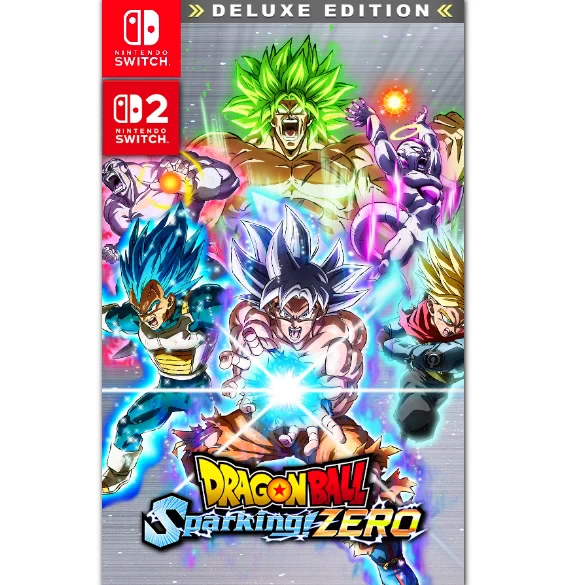
Dragon Ball: Sparking! ZERO - Deluxe Edition
Dragon Ball: Sparking! ZERO - Deluxe Edition
Dragon Ball: Sparking! Zero – Deluxe Edition was released on the same day as the standard edition of the game, which only contains the base game. This edition, in addition to the base game, gives you access to the first season pass, which includes 4 DLCs.
With this edition, you will also have access to the content of each DLC in the pass 4 days before its official release.
The 4 DLCs included in the first pass feature over 20 characters based on DB: Super and DB: Daima, as well as cosmetics, and some story and battle content.
This edition can only be purchased digitally through the Nintendo Shop on our Nintendo Switch console, and once purchased, it will work on either of the two consoles, Switch 1 or 2, as the game is linked to the account.
Super Nintendo Jr. (SNES-101)
Super Nintendo Jr. (SNES-101)
The SNES-101 or Super Nintendo Jr. was released 6 years after the original SNES in USA, redesigning and compacting the console, making it cheaper and more accessible, since the N64 was already on the market.
This console has a Japanese sister version named Super Famicom Jr., sharing the same cartridge compatibility issues, but this time sharing the design.
This model only features composite AV output.
J-Stars Victory Vs
J-Stars Victory Vs
J-Stars Victory Vs is a fighting game that brings together multiple characters from the Japanese magazine Weekly Shōnen Jump, including some from Dragon Ball like Goku, Vegeta, and Frieza. It features multiplayer and 2 vs. 2 battles, and was also released on other platforms such as PS3 and PS4.
Realme GT Neo 2 Dragon Ball Z
Realme GT Neo 2 Dragon Ball Z
The Realme GT Neo 2 Dragon Ball Z is a limited edition dedicated to DBZ, with 12 GB of RAM, 256 GB of storage, and a 6.62" display. It was inspired by Goku’s outfit, hence the orange and blue colors, as well as the logo with the kanji. Additionally, as a limited edition, it includes a unique box, exclusive theme, stickers, and cards.
Dragon Ball: The Breakers - Limited Edition Bundle
Dragon Ball: The Breakers - Limited Edition Bundle
Dragon Ball: The Breakers – Limited Edition was released on the same date as the standard edition, in 2022.
It is the most complete edition of the game and includes everything from the Special Edition, plus several exclusive physical items.
This edition includes:
-
Physical copy of the game.
-
Decorative steelbook case.
-
Stickers.
-
Potara earrings.
-
Larval Cell shell figure.
-
Digital cosmetic content: a full outfit, a victory pose, and a vehicle skin.
Dragon Ball Z: Kakarot - Master Edition
Dragon Ball Z: Kakarot - Master Edition
Dragon Ball Z: Kakarot – Legendary Edition was released four years after the original edition.
By the time of its release, the first and second Season Passes had concluded, and the third was just beginning.
At launch, it became the most complete edition available, as it included the base game and access to all 3 Season Passes, featuring everything from A New Power Awakens Set, Trunks – The Warrior of Hope, Goku’s Next Journey, and DAIMA: Adventure Through The Demon Realm.
It also includes permanent upgrades for cooking items and an exclusive item to move around the map while exploring or doing quests: Tao Pai Pai’s Pillar.
Dragonball Evolution: The Game
Dragonball Evolution: The Game
Dragonball Evolution: The Game is based on the unfortunate live-action film. Its characters and stages come directly from the movie. The gameplay is similar to the previous Tenkaichi titles, which is at least a positive point. The game allows multiplayer and, as a curiosity, lets you play as Bulma.
Super Dragon Ball Heroes: World Mission
Super Dragon Ball Heroes: World Mission
Super Dragon Ball Heroes: World Mission is a digital adaptation of the Japanese arcade machines played with real cards, known by the same name: DB Heroes. It was released in 2019 for Nintendo Switch (and also has a PC version).
The game is a card-based combat game where we play as Beat, who becomes involved in various battles to save the world alongside our heroes.
It features 7 vs. 7 card battles, with iconic Dragon Ball characters and unique transformations exclusive to this game. It includes over 350 characters and more than 1000 cards to collect.
Dragon Ball Z: Super Gokuden - Totsugeki-Hen
Dragon Ball Z: Super Gokuden - Totsugeki-Hen
Dragon Ball Z: Super Gokuden - Totsugeki-Hen is the fifth Dragon Ball Z game released for the Super Nintendo and Super Famicom, although it never had official versions in Europe or America, so it only came out for the SFC. It is also the first RPG adventure game released for this console in 1995.
Although its title includes DBZ, the game only covers the classic Dragon Ball era, when Goku was still a child. Its story spans from the beginning of Dragon Ball to the defeat of Piccolo Daimaoh, covering almost the entire original series.
Its gameplay is narrative-focused with action or event moments, where players must make decisions or press buttons to fight, since battles are semi-automatic, requiring timed inputs. It feels like watching Dragon Ball interactively, similar to a graphic adventure.
Players will control Goku, Krillin, Yamcha, and other characters depending on the story arc being played.

